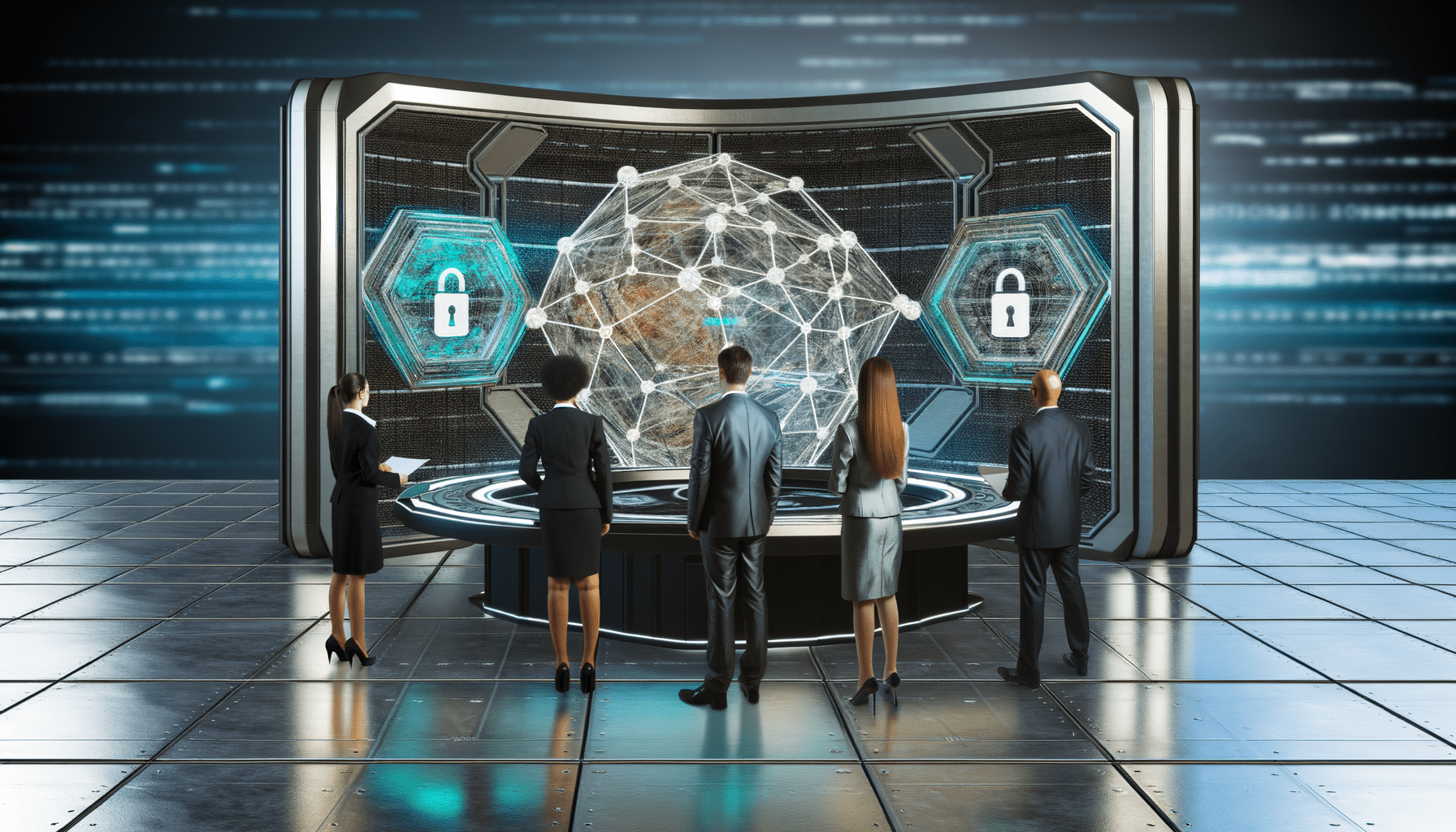- AI in Government
- November 16, 2024
Blockchain in Government Record Management

Revolutionizing Government Record Management with Blockchain Technology
As someone deeply invested in leveraging technology for transformative outcomes, I’ve often been asked about the potential of blockchain in government setups. Many government entities face immense challenges when managing records. Security breaches, data authenticity disputes, and tedious verification processes are par for the course. But imagine a world where these issues are things of the past. That’s the promise of implementing blockchain for secure government record keeping.
The Challenges in Government Record Management
Before diving into how blockchain fits into the equation, it’s crucial to understand the challenges governments face. Government records encompass an expansive variety of documents, such as licenses, permits, land registrations, and more. Maintaining these records securely and ensuring their integrity is paramount. Here are some persistent challenges:
- Data Security and Privacy: Modern cyber threats pose significant risks to sensitive government records.
- Verification and Transparency: Often, records need a long lineage of verification, which can be cumbersome and error-prone.
- Compliance Burden: With evolving legal frameworks, ensuring records adhere to compliance requirements is complex.
Blockchain: The Answer to Secure and Transparent Records
Blockchain technology serves as a decentralized ledger system. Each record added to a blockchain is assigned a unique hash and linked to the preceding record. This ensures immutability and transparency, making blockchain an ideal solution for managing government records. Here’s why:
- Enhanced Security: Blockchain’s decentralized structure means that there’s no single point of failure. The cryptographic nature of blockchain also ensures that data cannot be tampered with.
- Improved Transparency: Since data on a blockchain is updated in real-time across all nodes in the network, stakeholders can view the latest records without discrepancies.
- Streamlined Verification: Verifying a record’s authenticity becomes a straightforward task with blockchain’s inherent capability of maintaining a transparent history of changes.
Real-World Implementation: A Case for Blockchain in Government
Several governments have already begun partial or full-scale blockchain projects to overhaul their record management processes. For instance, the Republic of Estonia’s digital identity program employs blockchain to maintain governmental records securely. This initiative has not only enhanced customer service but also bolstered cybersecurity measures against identity theft.
Another compelling example is India’s Land Registry projects using blockchain to ensure transparency in property transactions. This initiative addresses the longstanding issues of fraudulent land claims and disputes, driving the movement toward more secure, reliable documentation processes.
My Journey: Harnessing Blockchain for Government Records
Developing RecordsKeeper.AI was not just a technological endeavor; it was a mission to streamline how records like government documents are managed, protected, and accessed. Incorporating blockchain into RecordsKeeper.AI began with a vision of providing untampered, crystal-clear record solutions in sectors where security is non-negotiable.
Using immutable blockchain technology, I’ve equipped our platform to resolve some of the challenges highlighted earlier, like ensuring the authenticity of data exchanges and compliance management. The strategic advantage is undeniable: turning record management from a cumbersome act into a technologically advanced process that benefits both administrative teams and end-users.
Conclusion: The Path Forward for Government Records
The era of reimagining government record management is here, and blockchain is at the forefront of this transformation. Agencies dedicated to enhancing operational efficiency, transparency, and security must consider integrating blockchain technology into their systems. It’s not just about adapting to a trend; it’s about making government processes future-proof and trustworthy.
For those interested in learning more about how blockchain technology can revolutionize your record-keeping processes, I invite you to explore more about RecordsKeeper.AI. Stay updated on how tech can further energize compliance and security, as we move towards a more seamless digital government landscape.
Toshendra Sharma is the visionary founder and CEO of RecordsKeeper.AI, spearheading the fusion of AI and blockchain to redefine enterprise record management. With a groundbreaking approach to solving complex business challenges, Toshendra combines deep expertise in blockchain and artificial intelligence with an acute understanding of enterprise compliance and security needs.
Related Posts

Blockchain in Municipal Records Management
Improving transparency in municipal record keeping with blockchain.
- November 16, 2024

Blockchain in Public Procurement Transparency
Enhancing transparency in public procurement through blockchain.
- November 16, 2024
Archives
- January 2025
- December 2024
- November 2024
- October 2024
- September 2024
- August 2024
- July 2024
- June 2024
- May 2024
- April 2024
- March 2024
- February 2024
- January 2024
- December 2023
- November 2023
- October 2023
- September 2023
- August 2023
- July 2023
- June 2023
- May 2023
- April 2023
- March 2023
- February 2023
- January 2023
- December 2022
- November 2022
- October 2022
- September 2022
Want to get more content like this?
Signup to directly get this type of content to your inbox!!
Latest Post
Document Control for Equipment Maintenance
- January 20, 2025
Managing Records for Multiple Clients
- January 19, 2025
Handling Conference Documentation
- January 18, 2025
Setting Up Department Record Reviews
- January 17, 2025





